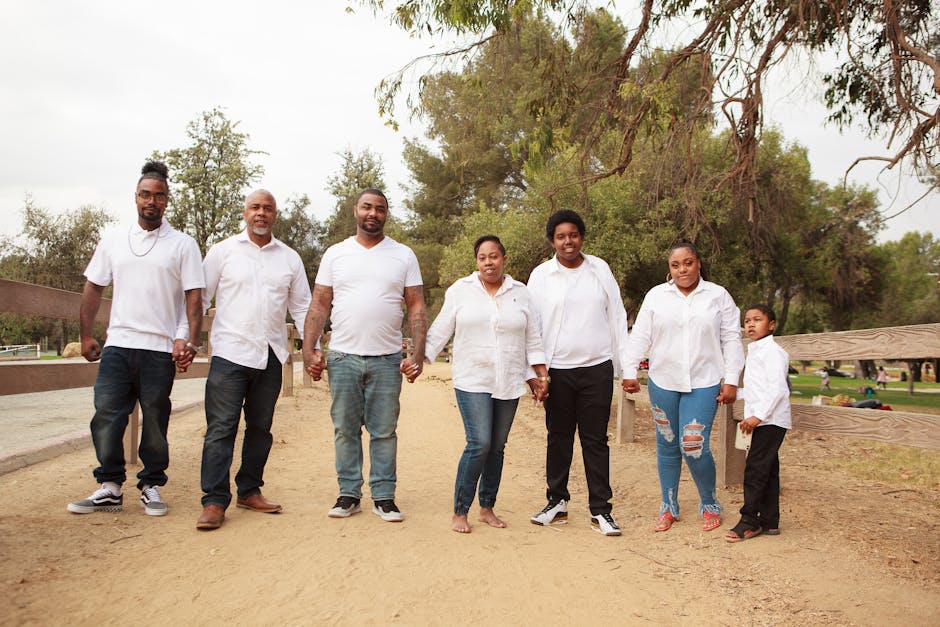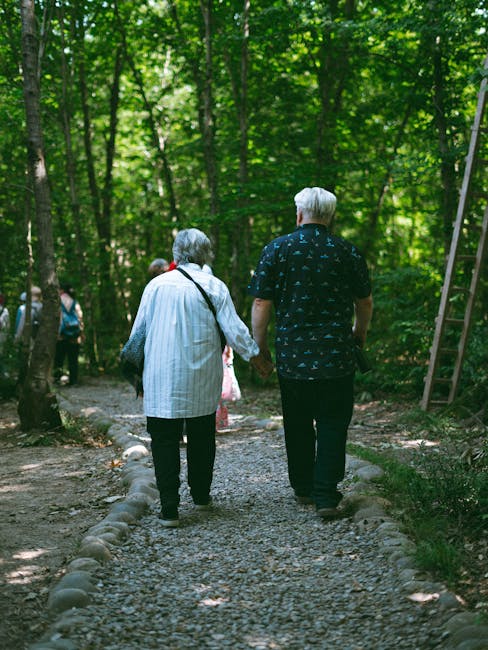The Benefits Of Gratitude In Relationships
Gratitude is like the secret ingredient in a recipe—it might not be the first thing you notice, but it makes everything better. In relationships, practicing gratitude can transform how you connect with your partner, friends, or family. It’s not just about saying “thank you” but about fostering deeper emotional bonds, improving mental health, and even resolving conflicts.
If you’ve ever wondered how to make your relationships stronger and more fulfilling, keep reading. Gratitude might just be the magic wand you didn’t know you had.
Key Takeaways
- Gratitude strengthens emotional connections and builds trust in relationships.
- It improves mental health and boosts relationship satisfaction.
- Simple practices like gratitude journaling or verbal affirmations can make a big difference.
- Gratitude helps manage stress and resolve conflicts more effectively.
Introduction to Gratitude in Relationships
Definition of Gratitude and Its Role in Relationships
Gratitude is the act of recognizing and appreciating the good things in your life. In relationships, it’s about valuing the people around you and acknowledging their efforts, kindness, and presence.
Think of it as a mirror. When you show gratitude, it reflects positivity back into your relationships. It’s a way of saying, “I see you, and I appreciate you,” which can make anyone feel valued and loved.
Overview of the Benefits of Practicing Gratitude
Practicing gratitude in relationships has a ripple effect. It strengthens emotional bonds, reduces stress, and even improves physical health. Studies show that couples who express gratitude regularly are more satisfied and resilient during tough times (source).

Emotional Connection and Strengthened Bonds
How Gratitude Fosters Emotional Intimacy
When you express gratitude, you’re opening a door to emotional intimacy. It’s like planting seeds of connection that grow into trust and understanding.
For example, saying, “Thank you for always listening to me,” can make your partner feel seen and appreciated. This simple act can deepen your bond and create a safe space for vulnerability.
Strengthening Trust and Mutual Respect Through Appreciation
Gratitude also builds trust. When you acknowledge someone’s efforts, it shows that you respect and value them. This mutual respect is the foundation of any strong relationship.
Imagine a friend helping you move. A heartfelt “I couldn’t have done this without you” not only shows appreciation but also strengthens your friendship.

Gratitude and Mental Health in Relationships
Positive Effects of Gratitude on Mental Well-Being
Gratitude isn’t just good for relationships; it’s a mental health booster too. It reduces anxiety, increases happiness, and even improves sleep. When you’re grateful, your brain releases feel-good chemicals like dopamine and serotonin.
This positivity spills over into your relationships, making you more patient, understanding, and empathetic.
Research Findings on Gratitude and Relationship Satisfaction
Research has found that gratitude is a key predictor of relationship satisfaction. Couples who express gratitude are more likely to feel connected and less likely to argue (source).

Cultivating Gratitude in Relationships
Expressing Appreciation Regularly
Verbal Affirmations
Words are powerful. A simple “I appreciate you” can brighten someone’s day and strengthen your bond.
Writing Gratitude Notes
Handwritten notes might feel old-school, but they’re incredibly meaningful. A quick “thank you” note left on the fridge can make your partner feel special.
Engaging in Gratitude Activities Together
Gratitude Journaling as a Couple
Journaling together can be a fun and meaningful activity. Write down three things you’re grateful for each day and share them with each other.
Sharing Daily Moments of Thankfulness
Take a moment each day to share something you’re grateful for. It could be as simple as, “I’m grateful for the coffee you made this morning.”
For more ideas on cultivating gratitude, check out this guide.

Gratitude and Conflict Resolution
Managing Jealousy Through Gratitude
Recognizing and Appreciating Positive Traits in Partners
Jealousy can creep into any relationship, but gratitude can help. Focus on your partner’s positive traits and express appreciation for them.
Healing Anxious Attachment With Gratitude
Building Security and Reassurance
If you or your partner struggle with anxious attachment, gratitude can be a soothing balm. Expressing appreciation can build a sense of security and reassurance.

Gratitude and Personal Growth in Relationships
Learning From Friendship Breakups
Emphasizing Gratitude for Past Connections
Even when friendships end, gratitude can help you focus on the good memories rather than the loss.
Setting Boundaries With Narcissistic Parents
Focusing on Gratitude in Personal Relationships
Gratitude can also help you set healthy boundaries. By focusing on the positive aspects of other relationships, you can create a more balanced emotional life.

Gratitude as a Tool for Stress Management
Mitigating the Impact of Stress on Intimacy
Stress can strain any relationship, but gratitude acts as a buffer. It helps you focus on the positives, even during challenging times.
Promoting a Culture of Gratitude During Challenging Times
During tough times, make gratitude a habit. It can be as simple as saying, “I’m grateful we’re facing this together.”
For more tips on practicing gratitude, visit this article.
Conclusion
Recap of the Benefits of Gratitude in Relationships
Gratitude is a game-changer in relationships. It strengthens emotional bonds, improves mental health, and even helps resolve conflicts.
Encouragement to Practice Gratitude Daily for Stronger, Healthier Connections
Start small. Say “thank you” more often, write a gratitude note, or share what you’re thankful for each day. These little acts can lead to big changes in your relationships.
Remember, gratitude isn’t just a feeling; it’s a practice. And like any practice, the more you do it, the better you get. So why not start today?
For more on the power of gratitude, explore this insightful article.

Gratitude in Relationships: An FAQ to Strengthen Your Bonds
What is gratitude and why is it important in relationships?
Gratitude is the act of recognizing and appreciating the positive aspects of life or someone’s actions. In relationships, it fosters mutual respect, emotional connection, and a sense of being valued, which strengthens the bond between partners or loved ones.
How does expressing gratitude improve communication in relationships?
Expressing gratitude encourages open and positive communication by creating a safe space for sharing feelings. It reduces misunderstandings and promotes a culture of appreciation, making it easier to address challenges constructively.
Can practicing gratitude reduce conflicts in relationships?
Yes, gratitude can help reduce conflicts by shifting focus from negative aspects to positive ones. When both partners feel appreciated, they are less likely to engage in arguments and more likely to approach disagreements with empathy and understanding.
How does gratitude impact emotional intimacy?
Gratitude enhances emotional intimacy by fostering trust and closeness. When you regularly express appreciation, it deepens the emotional connection, making both partners feel more secure and loved in the relationship.
What are some practical ways to show gratitude in a relationship?
Simple acts like saying ‘thank you,’ writing a heartfelt note, giving compliments, or performing small gestures of kindness can effectively show gratitude. Regularly acknowledging your partner’s efforts and contributions also goes a long way.
Does gratitude have long-term benefits for relationships?
Absolutely. Over time, gratitude strengthens the foundation of a relationship by fostering mutual respect, reducing negativity, and increasing overall satisfaction. It creates a positive cycle of appreciation that sustains the bond.
Can gratitude help during tough times in a relationship?
Yes, gratitude can be a powerful tool during challenging times. It helps partners focus on the positive aspects of their relationship, providing emotional support and resilience to navigate difficulties together.
Is it possible to cultivate gratitude if it doesn’t come naturally?
Yes, gratitude can be cultivated with practice. Start by keeping a gratitude journal, reflecting on positive moments, or making a conscious effort to acknowledge your partner’s efforts. Over time, it becomes a natural part of your mindset.
How does gratitude benefit relationships beyond romantic partnerships?
Gratitude strengthens all types of relationships, including friendships, family bonds, and professional connections. It fosters trust, mutual respect, and a sense of community, making interactions more positive and fulfilling.
What are some signs that gratitude is lacking in a relationship?
Signs may include frequent criticism, feelings of being taken for granted, lack of appreciation for efforts, and emotional distance. Addressing these issues with open communication and intentional gratitude can help restore balance.



